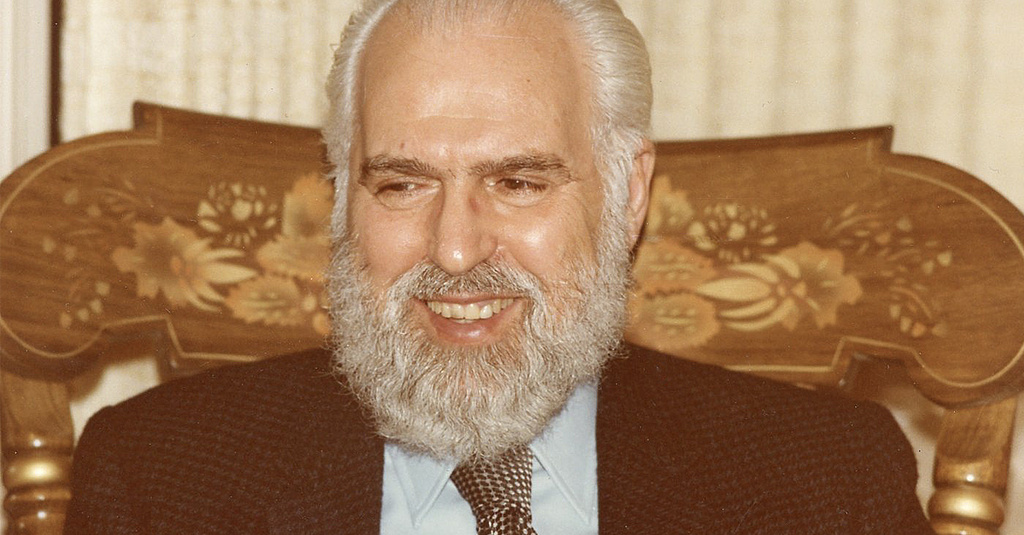
“We’re All Rushdoony-ites Now”
Although many borrowed his ideas without citing him as their source, Rushdoony remains one of the most important Christian thinkers of the modern era, and we believe his influence will only increase as the collapse of humanism continues.

- Chalcedon Editorial
Although many borrowed his ideas without citing him as their source, Rushdoony remains one of the most important Christian thinkers of the modern era, and we believe his influence will only increase as the collapse of humanism continues.
In a recent interview for Canon Press, Doug Wilson noted how a good many influential thinkers—notably Francis Schaeffer—borrowed a great deal from Rushdoony without citing him. To this day, the distancing continues, but the ideas are still seen. Even online, much of the social media squabbles are happening with those who surely have more than one Rushdoony volume on their shelves, but one cannot fault Rush for the way his ideas are handled.
The Big Idea(s)
What is the big idea that Rushdoony gave us? It’s nothing less than the biggest idea which is always the Kingdom of God, but Rush provided blueprints for a greater realization of Christ’s rule in every sphere of life and thought. In other words, men speak much about the Kingdom of God, but one is hard pressed to determine what is meant by the phrase. Is it heaven? Is it God’s providence over all things? Or is it limited to the church or reduced to the political sphere?
For Rushdoony, everything about covenant, law, and kingdom spoke directly to man’s responsibility in history, and in that sense, it’s a main reason for the opposition he received. How can man usher in the Kingdom of God? Rushdoony never claimed such. Instead, he admonished faithfulness and obedience on the part of Christians to the other big idea: the law of God.
As one greatly influenced by Dr. Cornelius Van Til, Rush took the next step after Van Til’s conclusion that we are left with two options in man’s epistemological pursuit: autonomy or theonomy, and with that, Christian Reconstruction emerges. Rushdoony devoted himself to answering the question of what a theonomic approach would look like.
Schaeffer
Returning to Doug Wilson’s interview, he puts forward Francis Schaeffer as the prime example of one who borrowed from Rushdoony without citing Rush in the footnotes:
Francis Schaeffer learned an enormous amount from Rushdoony, and it doesn’t come out in the footnotes. What he did is he cleaned Rushdoony up, made him ready for prime time. If I learn something from Rushdoony, I say his name. Well, Schaeffer didn’t do that. He just sort of borrowed the idea, took the idea, and made it palatable to the mainstream and did an enormous amount of good. But we’re all “Rushdoony-ites” now because of the whole evangelical world, Francis Schaeffer was the one who brought evangelicals around to being pro-life at all.1
And what is Schaeffer’s most popular work? Arguably, that would be the documentary and book How Should We Then Live (1976) arriving just three years after the publishing of Rushdoony’s Institutes of Biblical Law. As Wilson noted, these ideas were made ready for the prime time of evangelicalism, and no doubt Schaeffer still helped to bring others to discover both Rushdoony and Van Til.
Too Radical for Footnotes
The point here is not to give credit where credit is due but rather to take inventory of where we are right now, and what should be the way forward? The times have changed dramatically since the early 70s, and what was once “too radical for footnotes” is now the only position absolute enough for a society knee deep in moral mud and blown by the fierce winds of philosophical and religious confusion.
In short, the baton was passed to us by Rushdoony, Van Til, North, Bahnsen, et al., and the challenge we have is to keep the mission and vision alive to help inspire and equip a new generation to apply their faith and do the work of Christian reconstruction.
There is also our continued prophetic role as we sustain the critique against humanism wherever it appears. If judgment begins at the house of God (1 Peter 4:17), then let the light of God’s law-word be continually shone on all that we do and say. Rushdoony left us with so many tools for the work of dominion, and Chalcedon remains as a ministry that’s still greatly needed. Let’s run with the vision and continue building!

- Chalcedon Editorial